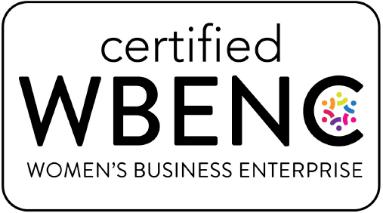Authored by:

Justin R. Muehlmeyer
Patent Attorney
All Posts by Justin
So you got their attention and now it is time to work out the deal. Most licensing agreements begin by negotiating the key deal terms, and then turning it over to the attorneys to formalize the details. The goal, of course, is to draft something that will be beneficial to all parties for the entire relationship. Asking the following nine questions will help you make the best possible decisions concerning your valuable intellectual property (IP) assets. Hopefully you have a plan for these questions before you start negotiating the deal.
Question 1: What exactly are you selling and who owns it?
Title to IP is complex and requires quite the paper trail to establish with any certainty. For example, if more than one inventor is associated with a patent, licensing disputes can arise because each co-owner can license the patent without the consent of the co-owner. It also may be that the inventors own it but not your company if you did not get an assignment from all the inventors. If you are selling or granting a license in IP, you typically will be asked to guarantee you own it. Have your ownership ducks in a row before you negotiate the deal.
Question 2: What type of license is it?
Exclusive licenses grant exclusive use of IP to a single licensee, with the licensor typically forfeiting use rights. A sole license is similar but allows the licensor to use the IP as well. A non-exclusive license allows the licensee to grant multiple licenses to use the IP. Perpetual licenses are purchased once and grant the right to lifetime use, while term licenses either allow access for a specific amount of time or a specified number of uses. Knowing which license agreement makes the most sense for your situation can have a huge effect on the success of the agreement.
Question 3: How will this license agreement make it possible for each party to make money?
If each party is not gaining something from the deal, the deal could fail or go terribly wrong down the road. Brainstorm all the possible sources of revenue (there may be more than you initially thought), and be aware of the details or contingencies that may cut into that. Examples of possible licensing gains include the rights to use a trademark or logo, manufacturing rights, or investment in research and development.
Question 4: What rights are included in the license?
While the need to clarify the subject of the licensing agreement may seem obvious, the failure to do so is the root of a surprising number of legal disputes. A licensee often wishes the subject to be broad, while licensors naturally prefer narrow subject licensing. Taking the time to understand precisely how the underlying technology works and detailing what is needed by both parties in clear language can prevent conflict down the road.
Question 5: Will the license be exclusive or non-exclusive?
Exclusive and nonexclusive licenses have both advantages and drawbacks. As compensation for forfeiting use rights in an exclusive licensing agreement, licensors typically demand higher fees while requiring licensees to meet certain milestones to assure ongoing revenue. However, nonexclusive licenses are often advantageous because they generate competition between licensees that can lead to innovation and additional revenue for the licensor in the long term.
Question 6: What territory is covered?
Licensing agreements may limit licensees to use of the IP within a specific geographic area or field of technology or class of customers. Such restrictions are very common in trademark licenses, where licensees are often granted exclusive use rights for specific regions. How you define the scope of the territory is unique to your industry, business, market and technology.
Question 7: What is the scope of the license?
IP rights involve a “bundle” of rights that are separately sellable or licensable. The scope of a license agreement specifies what licensees are allowed to do and what rights in the “bundle” they are granted. For example, there is a difference between the right to simply use a technology for internal purposes and the right to distribute it. Precise legal words should be used to provide clarity.
Question 8: How will the compensation be structured?
A properly structured licensing agreement ensures that compensation terms are clear in order to avoid disputes down the road. There is no one way to do it; how you set up the payment terms is almost always unique to your deal. Under a fixed price per unit royalty structure, licensees pay a set price for each unit or product sold embodying the licensed intellectual property. While under a percentage of revenue plan, licensees pay a percentage of operating profits or “net sales” to the licensor. Since profits or “net sales” can be defined in a number of ways, the precise formula should be addressed. Establishing clarity about the definition of payment terms and deductions is essential. The capabilities of both licensee and licensor to live up the agreed terms is key to a successful deal and meaningful relationship.
Question 9: What law will be used when there is a dispute?
While well-drafted licensing agreements are designed to avoid disputes, they still sometimes occur. Perhaps the market changed putting new incentives or pressures on the parties in unanticipated ways. The agreement can and should address the procedure for how disputes are resolved, possibly addressing the type of resolution (such as mediation or arbitration), choice of law and the jurisdiction that will handle any disputes.
Any agreement involving IP should be done with the guidance of experienced intellectual property attorneys. It is one of our specialties at Peacock Law. We have structured, negotiated, drafted, administered and litigated countless licensing agreements for a wide range of technologies and industries. Making money and creating long-term beneficial relationships for our clients is our favorite thing to do. Learn more about our licensing services at our website: https://peacocklaw.com/licensing-product-commercialization.


